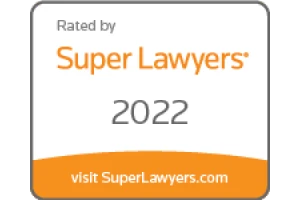- No Fee Unless We Win: (800) 249-3731 Tap Here To Call Us
Exclusions, Limitations, and Offsets Oh My!: Is the Total Value of Your Disability Insurance Benefits At Risk?*
Disability insurance is a unique type of insurance that protects a person’s ability to earn a paycheck if that person experiences a serious injury or illness. Disability insurance is meant to provide employees with a way to receive a portion of their expected income if they later become unable to work. Disability insurance is often categorized as either short-term or long-term. The primary difference between short-term and long-term disability plans are the periods of time a person may receive benefits due to her inability to work. Short-term disability plans usually work in tandem with long-term disability plans. Generally, once short-term benefits are exhausted, then a long-term disability policy would become effective in an effort to continue providing an employee with income until she is able to return to work. Some long-term disability plans may last for the lifetime of the policyholder, most will usually provide coverage for approximately thirty-six (36) months.
Most employers provide some type of disability insurance coverage for their employees. It might be time to refresh your memory on what your employer provides you with specifically. In an unpublished opinion, the Ninth Circuit recently determined that an employer provided disability insurance company was within its rights to reduce an employee’s disability benefits by $800,000. The $800,000 came from a recent personal injury settlement the employee received on a completely unrelated matter. Haddad v. SMG Long Term Disability Plan, No. 16-CV-01700-WHO, 2021 WL 2187979 (E.D. Cal. May 28, 2021).
The case turned on the legal distinction between “offsets” and “exclusions” and “limitations” in regard to long-term disability plans. This marginal difference may be the difference between receiving the anticipated total value of long-term disability benefits or having that total value later diminished. Exclusions and limitations carve out areas from the scope of an insurance policy’s coverage. Offsets reduce the total amount owed for covered claims.
For example, in the case mentioned above, Mr. Haddad was an employee that received long-term disability benefits from his employer-sponsored insurance plan after becoming disabled. He received an $800,000 settlement for an unrelated matter and his disability benefits were reduced, or offset, by the amount he received in the settlement. Mr. Haddad challenged this offset and ultimately lost. The Ninth Circuit reasoned that offsets are distinctly different from exclusions and limitations and therefore the employer-sponsored insurance plan was within its rights to reduce Mr. Haddad’s disability benefits by the amount he received in his settlement.
The Ninth Circuit further stipulated that the employer-sponsored insurance plan was clear and unambiguous when it mentioned specifically in its long-term disability plan that disability benefits would be offset by any payments that were the result of a settlement or judgment to the insured employee. This long-term disability plan specifically did not require that the offsets to settlements be for related injuries. This long-term disability plan provider was also not required to draw attention to the language in its plan related to offsets based on settlements or judgments. Thus, even though Mr. Haddad received the settlement for something unrelated to his disability insurance it was still deemed okay for the employer-sponsored insurance provider to reduce his disability benefits by the settlement amount.
If you have questions about your disability insurance plan or have experienced a situation similar to Mr. Haddad, call us today at (859) 225-3731 or visit us here to request a free consultation with one of Mehr Fairbanks’ attorneys.
*The information contained within this post should not be considered legal advice or legal representation.

















